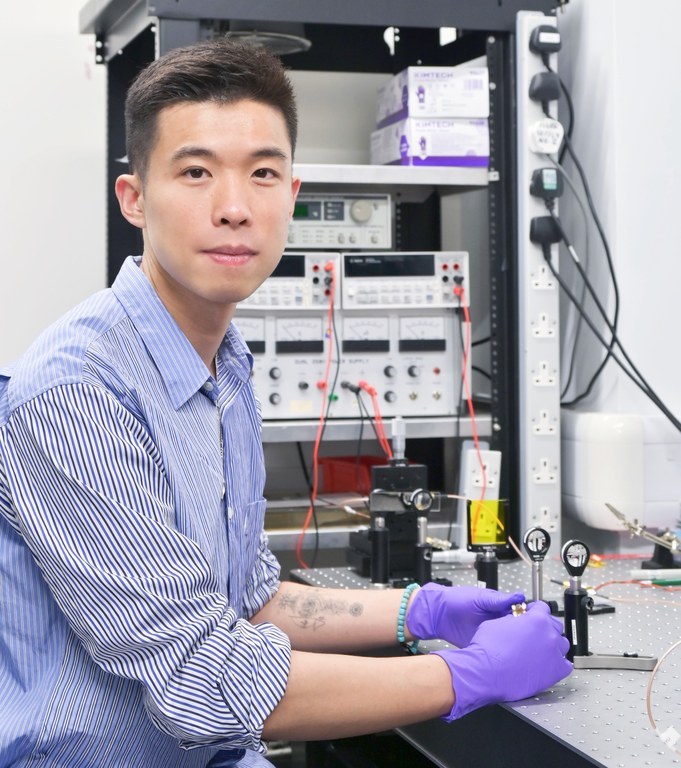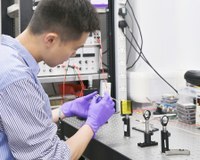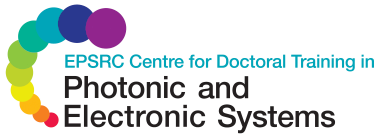
PhD researchers are investigating how light could be the future of the internet and data transmission.
Hao Wang, a PhD student aligned to the CEPS CDT, and a team of researchers at University of Surrey and University of Cambridge are investigating how fast data transmissions could be delivered in homes and offices through light-emitting diodes (LED) bulbs, complementing existing communication technologies and networks.
The new study, published in the journal Nature Photonics, explores how to release high-speed photonic sources using metal-halide perovskites. These semiconductors are studied with LEDs for their excellent optoelectronic properties and low-cost processing methods.
Dr Wei Zhang, corresponding author of the study at University of Surrey said: “IoT connected devices have the potential to add significant value to industry and the global economy. In this market costs and compatibility are often prioritised over data transmission speed and scientists are looking for alternative ways to reduce energy consumption per bit and improve compactness while simultaneously working on improving the speed of data connection.”
 This study is a huge leap forward in showing how metal-halide perovskites could provide a cost-efficient and powerful solution to make LEDs which have enormous potential to increase their bandwidths into the gigahertz levels. The insights gained from this research will open up new avenues for advancements in optoelectronic technologies.
This study is a huge leap forward in showing how metal-halide perovskites could provide a cost-efficient and powerful solution to make LEDs which have enormous potential to increase their bandwidths into the gigahertz levels. The insights gained from this research will open up new avenues for advancements in optoelectronic technologies.
Hao Wang, co-first author and PhD student on the CEPS CDT at University of Cambridge, said: “This is a significant step toward perovskite light sources for next-generation data communications.”
“The ability to achieve solution-processed perovskite emitters on silicon substrates also paves the way for their integration with micro-electronics platforms, presenting new opportunities for seamless integration and advancement in this field.”
The research published in the journal Nature Photonics was a collaborative project with the support over 10 laboratories and research institutes from Oxford, Cambridge, Bath, Warwick, UCL, EMPA and UESTC.
Read the full article: https://www.surrey.ac.uk/news/lights-could-be-future-internet-and-data-transmission
Published: July 2023 by University of Surrey.
Reference: Aobo Ren, Hao Wang et al. ‘High-bandwidth perovskite photonic sources on silicon.’ Nature Photonics (2023). DOI: 10.1038/s41566-023-01242-9.
Mr Hao Wang is a PhD researcher at University Cambridge. His primary supervisor is Professor Richard Penty, Director of the Connected Electronic and Photonic Systems (CEPS) programme.
